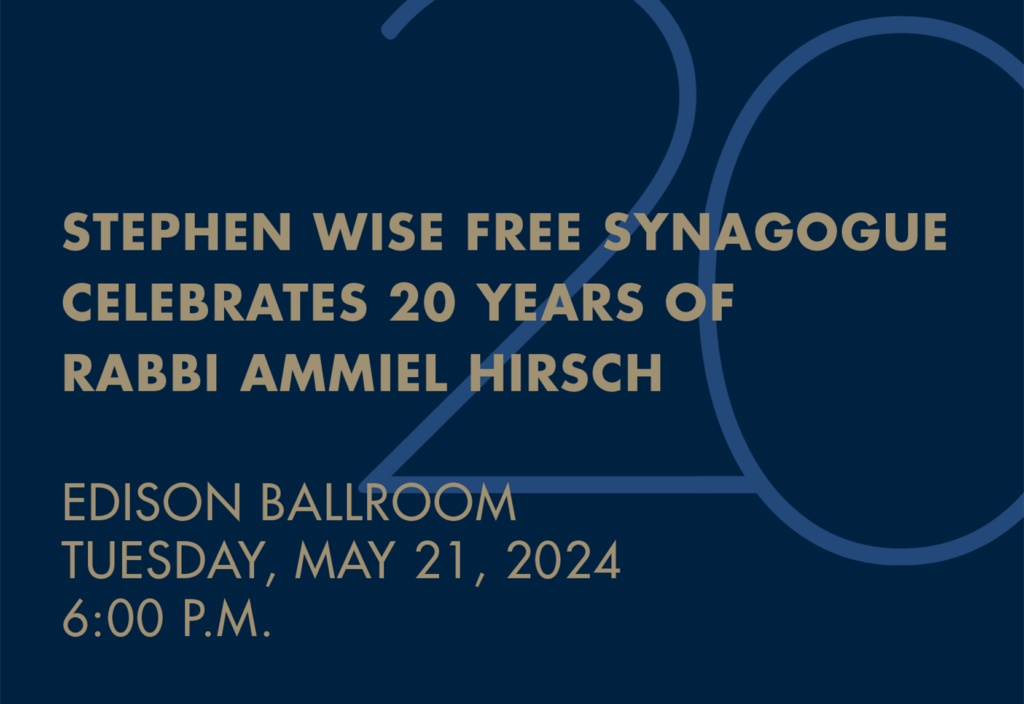“I wanted to talk about how Tuesday’s election gave me a revived sense of hope and possibility…but I’m back to feeling defeated and deflated. May we, like Jacob and Esau, find our way back to one another, and ourselves, someday soon.” Our Rabbi Rena Rifkin draws parallels between our country’s climate and the relationship between Jacob and Esau in this week’s parasha.
“I know that many of us are afraid. We gather today in memory, in solidarity, but also in defiance. To be a Jew is, itself, an act of defiance. We will not cower. Be proud to be a Jew: you are connected to something special and precious – Am Yisrael, the people of Israel – the only Western civilization to have survived ancient days.”
Rabbi Ammiel Hirsch reassured and inspired the New York Jewish community at the first Shabbat service after the shooting at the Tree of Life Synagogue in Pittsburgh, where 11 worshippers were killed.
“Sitting there in the Cabinet Room, waiting for the leader of the reconstituted Jewish state, I felt the mysterious, ineluctable flow of time.”
Rabbi Hirsch reflected on his meeting with Israeli Prime Minister Benjamin Netanyahu, and the American-Jewish existential crisis: “Every Jew is like a grain of sand – we assume our full potential when we combine with all the other Jews of the world, fulfilling our collective destiny.”
“Nowadays, we can’t really be sure whether a hurricane is just another storm, or if, somehow, the climate itself is changing – putting into question our very way of life. In the Torah, the key point is not that the world was flooded, but that, eventually, the waters receded.”
Rabbi Ammiel Hirsch discusses hope and the triumph of good over evil in the face of the flood that wiped out humanity.
“For all living beings the body’s needs are to continue to exist, but, for human beings, the mind needs harmony.” Rabbi Ammiel Hirsch asks difficult questions to justify religion’s relevance in our modern times.
In her sermon this Shabbat, Rabbi Samantha Natov reminds us to keep working towards spiritual growth after the High Holy Days:
“What happens the day after Yom Kippur? It’s as if we have a clean slate… Until a few hours, days, or weeks later. In some ways what happens between Yom Kippur and Rosh Hashanah is even more important. May we keep moving ahead towards our ideals with humility and compassion for ourselves and others.”


